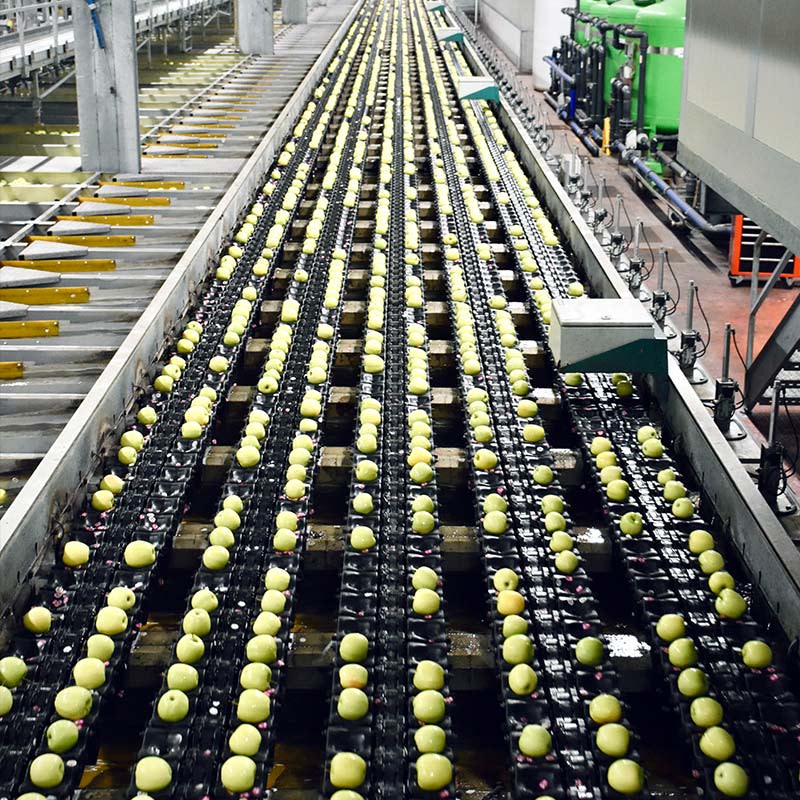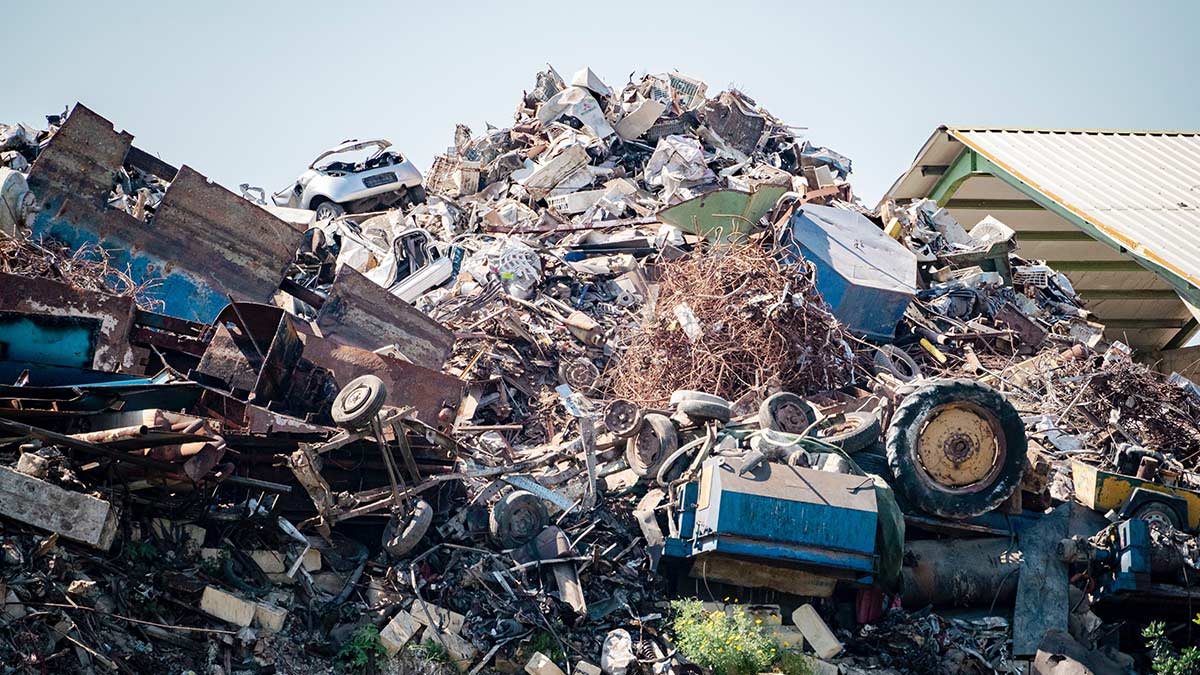These scenarios frequently appear in public debate and, upon closer inspection, reveal much more than just a few pros and cons. Instead, they offer fundamental starting points for shaping the working world of tomorrow.
Scenario 1: Automation
The robot takeover vs. a promise never fulfilled
Overview
The world of labour has always been evolving. However, in recent years, it seems to be changing at an ever-increasing pace. Technological advancements, particularly in automation and artificial intelligence, are transforming entire industries and rendering more and more professions obsolete. This shift is not limited to traditional manufacturing jobs; it is also impacting intellectual work. Recently, new tools like Dall-E and ChatGPT have even begun to encroach on the domain of creativity, which was previously considered uniquely human.
What are the opinions on this?
For many, it seems inevitable that we will eventually have to introduce a universal basic income. The demand for human labour is decreasing as automation, artificial intelligence, and robotics take over tasks, completing them in a fraction of the time. That’s why, for many, a basic income is the best way to mitigate the negative effects of this development by providing protection against technologically driven unemployment.

If we fail to ensure that these productivity gains benefit everyone, there is a risk that only a small elite will reap the rewards. The consequence could be an increasingly divided society—on one side, people with jobs, a sense of purpose, and social participation, and on the other, those excluded from these opportunities. Such a development carries significant social risks.
Critics of this outlook argue that it ignores the fact that jobs and work are not finite resources. Throughout history, technological progress has repeatedly displaced certain occupations while simultaneously creating new ones. Centuries ago, people predicted that we would eventually no longer need to work, yet that future has not materialised. For these critics, this is proof that we will neither achieve the utopia of robots doing all our work nor face the dystopia of sudden mass unemployment.
What is the crux of this debate?
The debate encompasses both the hope for a future where people have more time for the truly important things in life and the fear of losing purpose and meaning. At its core, as is often the case, lies the question of what it means to live a good and meaningful life—and how to protect ourselves from an uncertain future shaped by increasingly disruptive forces.
Scenario 2: Labour shortage
Who’s going to do the work vs. time to build trust
Overview
Many industries are already experiencing labour shortages, ranging from highly skilled professions to low-wage jobs in the hospitality sector. And there is no immediate solution in sight. Due to demographic changes, the baby boomer generation will soon retire, but not enough young workers will enter the labour market to replace them. As a result, the German labour market is set to face an annual shortfall of 500,000 potential workers in the near future. According to labour market expert Stefan Sauer from the ifo Institute – Leibniz Institute for Economic Research, this problem will become even more acute in the long term.
What are the opinions on this?

Critics argue that the existing labour shortages make implementing a universal basic income unrealistic. They contend that we need every available worker to maintain economic stability, and that any means is justified to halt the prosperity-eroding effects of an ageing population and low birth rates. They also say that raising the retirement age is an issue that needs to be discussed, and in such a strained labour market, allowing people the option not to work is an economic risk.
Others disagree. They argue that now is the time to build trust in the future and provide people with financial security in uncertain times. Since financial concerns and work-life balance often influence decisions about having children, a universal basic income could help shift societal attitudes towards both work and family life.
Furthermore, the COVID-19 crisis demonstrated that people in low-wage jobs are willing to retrain and transition to more sustainable industries when given the opportunity. The fact that labour shortages are concentrated in industries known for high stress and poor working conditions underscores the need for better wages and improved work-life balance—both of which could be facilitated by a universal basic income.
What is the crux of this debate?
In contrast to the first scenario, this debate assumes that the demand for labour will remain higher than the supply for the time being. But does this alone mean that employers will compete more fiercely for new talent in the future, or do additional incentives need to be created?
What can we do to make the future—and the world of work, which seems to have broken its promise of performance—attractive to increasingly disillusioned younger generation again? And how many young people do we need to maintain our social prosperity in the future?
Scenario 3: Post-growth
Doing less for the climate vs. the economic meltdown
Overview
More and more people are realising that there can be no "business as usual" in the face of the ever-worsening effects of the climate crisis. What is surprising, however, is that many are now even willing to give up some of their prosperity for the good of our planet. In a survey by the ARD political magazine Report Mainz, 46 percent agreed with the statement: "We have to give up economic growth to stop climate change."
The core idea of the so-called "degrowth" movement thus seems to be gaining traction in mainstream society. It argues that, for the good of our planet, we must scale back the economy in the most environmentally harmful and unnecessary industries—and, in doing so, reduce our consumption of resources.
What are the opinions on this?
How can we ensure that enough prosperity is generated to guarantee our livelihoods in a world where we are forced to abandon economic growth as our highest priority?
Jason Hickel, one of the leading figures behind this school of thought, openly admits that the transition to a more sustainable economy would also reduce the demand for labour. The more rational and efficient we make our economy, the more jobs will be lost, he says.
He sees the solution to this dilemma in a corresponding reduction in working hours, which would allow us to share jobs and provide ample free time for activities that truly matter, such as care work within families and society.
Would we still be able to generate enough prosperity this way? Towards the end of his latest book, Hickel proposes a basic income as a potential solution. But could it still be financed if people worked less?

The researchers of The Club of Rome think so and also advocate for a radical change in global economic, energy, and food systems in their new study Earth for All - A Survival Guide for Humanity. They see the key to this in a redistribution of wealth. Through higher taxation of the richest ten percent and on common goods used by industry, a basic income could be financed.
A nice but naive idea, says the other side. A global project of such magnitude would be entirely unrealistic in political terms. Furthermore, deliberately shrinking our economy while simultaneously ensuring economic security for all is simply unfeasible. The best approach, they argue, would be to focus on "green growth"—in other words, maintaining the growth logic of our economic system while making all production processes and infrastructure as environmentally friendly as possible. It would be a slow process, but at least one that would be socially acceptable and would not push a large part of the population into unemployment.
What is the crux of this debate?
As is so often the case with social change, the question is: How radical does systemic change need to be to bring about the necessary transformation? And can we design such a change in a way that minimises risk and spares us a blind step into the unknown? And last but not least: Is our standard of living negotiable? If so, to what degree?
Out of debate and into action
It remains to be seen which of the scenarios outlined here will unfold—and in what form. However, the fault lines in the debate about basic income and the future of work already indicate the key considerations we need to keep in mind.
Whether a universal basic income can be seen as a realistic part of the solution to these labour market challenges will depend primarily on one question: Do recipients of a basic income stop working?
Clarity needs to be gained on this simple but fundamental point. The Basic Income Pilot Project is currently conducting research to answer this very question.

